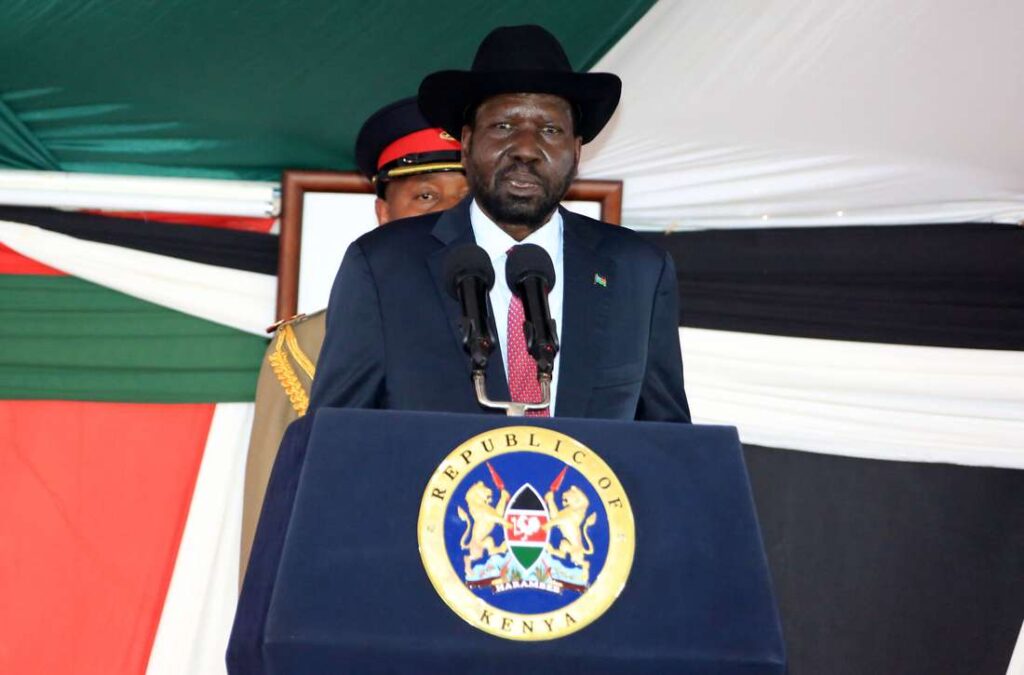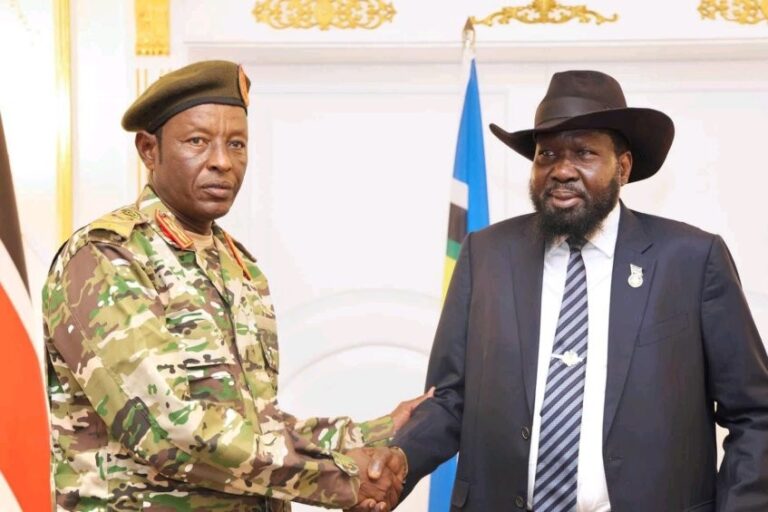President Salva Kiir may be uncertain about his re-election prospects and is relying on repressive institutions for support aligns with recent political maneuvers in South Sudan. The reshuffling of top intelligence officials in October 2024, just months before the December elections, seems to be a strategic move aimed at tightening his grip on power. Such changes could allow Kiir to strengthen his influence, particularly in his home state, where securing loyalty will be crucial.
South Sudan President Salva Kiir Mayardit on Thursday, through a presidential decree, dismissed his long-time intelligence chief and appointed him as the governor of his home state.
Lt Gen Akol Khoor, who led the National Security Service’s (NSS) Internal Security Bureau, was replaced by former Warrap State governor Lt Gen Akec Tong Aleu. On Thursday, 3 October, at the state house, President Kiir officiated the swearing-in of Lt. Gen. Akec Tong Aleu in the presence of his closest inner circle, namely, Nhial Deng Nhial, the former foreign minister, Tut Gatluak, the presidential advisor on national security service, Defence Minister Chol Thon Balok, and the Chief of Defence Forces Gen. Santino Deng Wol among others.
Warrup State which still sees fighting between rival ethnic communities despite the 2018 peace agreement to end the civil war in the country is one of South Sudan’s conflict hotspots.

More on this story: Polls in South Sudan Unlikely to Prevent Further Violence
In a separate decree, Gen Akol was reappointed as the governor of Warrap State, replacing Kuol Muor.
The move has sparked mixed reactions, with many expressing surprises at the president’s decision, while others commended his frequent use of decrees to shuffle officials.
Kiir, the country’s president since independence, has often exercised his constitutional powers to appoint and dismiss officials, sometimes only a few months after their appointment. Governors, national ministers, and other constitutional post holders have been frequent targets of such reshuffles.
The Undersecretary of the Ministry of Trade was recently also dismissed after only 22 days in office — having been appointed on August 21 and removed on September 10, 2024.
The newly appointed head of the NSS Internal Bureau, Lt Gen Akec Tong, is no stranger to strategic positions within Kiir’s administration.
Gen Kuc became head of the country’s National Security Services (NSS) after independence in 2011.
The NSS which was established in 2011, has been controversial particularly after the enactment of the 2014 NSS Act that granted the agency broad powers of arrest, detention, search, and seizure without sufficient civilian or judicial oversight, according to Human Rights Watch. Akol and the NSS have faced sharp criticism from international human rights groups and Western governments, including the United States, the United Kingdom, and Norway. Various reports have accused the NSS of engaging in human rights abuses such as arbitrary detentions, torture, and extrajudicial killings, accusing senior NSS officials of engaging in corrupt practices, including the embezzlement of public funds and undermining the country’s governance systems. These claims have reinforced concerns about the agency’s growing power under Akol’s leadership, raising questions about the accountability of South Sudan’s intelligence apparatus.
The NSS’s notorious Juba-based facility, commonly known as the “Blue House,” has housed government critics and civil society activists, including Peter Biar Ajak, who fled to the United States, citing threats to his life.
Businessman Kerbino Wol, another prominent detainee, was killed years ago in Lakes State by government forces after launching an armed movement, the October 7 Movement, to advocate for marginalised citizens’ rights.
Amnesty International and other human rights organisations have long documented cases of arbitrary detention, torture, and other forms of mistreatment by the NSS. Detainees are often held without access to legal representation or contact with their families.
The NSS’s influence is said to extend beyond South Sudan’s borders, with its spy network allegedly operating across East Africa.
One of the most high-profile cases was the 2017 forced disappearance of Dong Samuel Luak and Aggrey Idri, who were abducted in Nairobi, Kenya, and later killed in South Sudan, as concluded by a UN Panel of Experts.
Pundits have interpreted the dismissal as indicative of the hidden power struggle among top security officials.
Before the reshuffle, Gen. Koor has been rumored to have rallied the National Security Service in a ploy to topple the long-serving president, Gen. Salva Kiir Mayardit, The Golden Times however, could not independently verify the claims.On 16 April 2024, Morris Mabior Awikjok Bak appeared in public for the first time since his arrest, at a Juba Court where he was charged with defamation against the Director General of the NSS, Akol Koor Kuc. During his second appearance in court on 24 April 2024, the trial judge said Morris Mabior had already been bailed and he was unaware of why he was being escorted and held/detained by the NSS officers.




